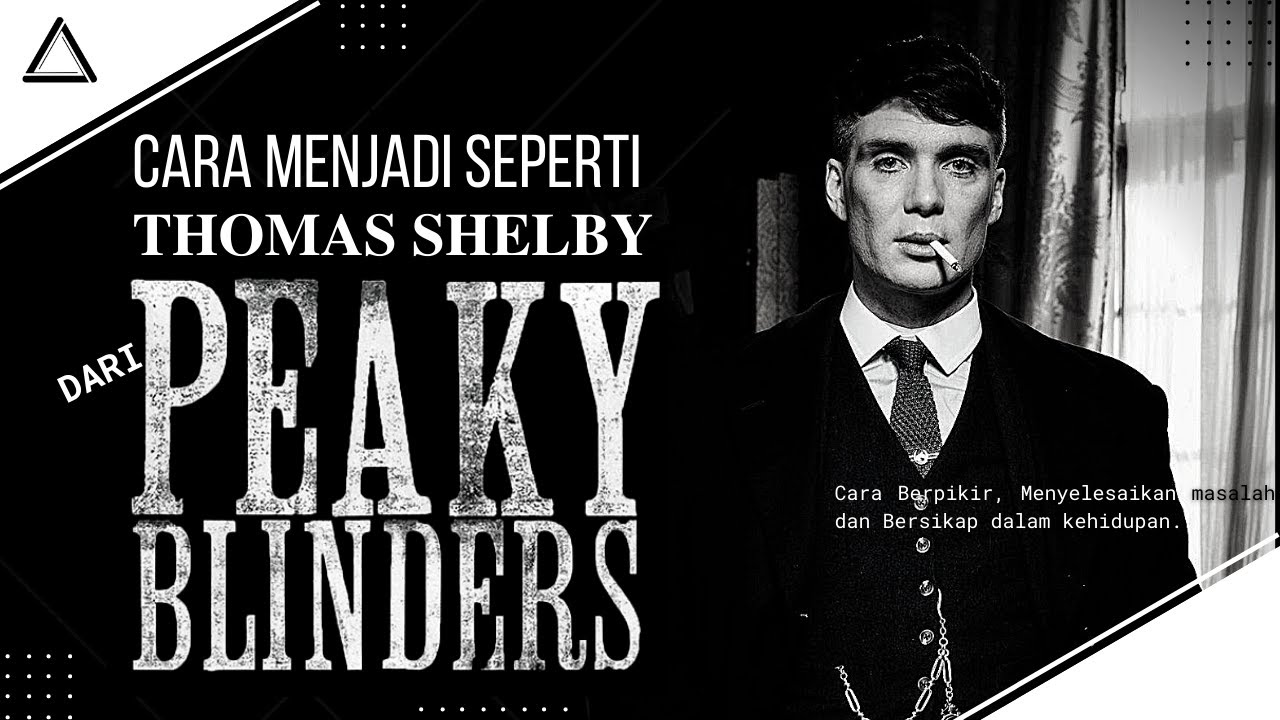Como DOMINAR Qualquer Conversa IMEDIATAMENTE (Peaky Blinders)
Summary
TLDRThis video analyzes a negotiation scene from the first season of 'Peaky Blinders,' where Tommy Shelby negotiates with an inspector. The video highlights various techniques used by Tommy to dominate the conversation, stay focused, and ensure mutual benefit. It discusses the importance of clarity, avoiding distractions, understanding the other party's desires, and using psychological tactics like the contrast principle. These strategies are illustrated through Tommy's interactions, emphasizing how to handle provocations, set clear terms, and create urgency in negotiations.
Takeaways
- 📌 Analyze social interactions and negotiations to dominate conversations.
- 🗣️ Thomas Shelby's negotiation with the inspector in Peaky Blinders offers valuable lessons.
- 🚀 Be direct about your goals and avoid unnecessary small talk to save time and stay focused.
- 🤝 Highlight mutual benefits in negotiations, showing how both parties can gain from the deal.
- 🧠 Understand the other person's needs and goals by asking strategic questions.
- 💡 Use the principle of non-reactivity: don't respond to provocations or offensive remarks.
- ⏳ Give the other party limited time to think and decide to avoid over-analysis and emotional decisions.
- 🔍 Show the other party what they will lose if they don't agree, using the law of contrast to make the offer more appealing.
- 📊 Emphasize the negative consequences for the other party if the negotiation fails.
- 🔄 Always be aware of both what you want and what the other party wants, ensuring a balanced and mutually beneficial agreement.
Q & A
What negotiation technique does Thomas Shelby use when he avoids small talk during his conversation with the inspector?
-Thomas Shelby uses the technique of staying focused on the main issue, avoiding small talk and distractions. This helps keep the conversation efficient and prevents wasting time on irrelevant matters.
How does Thomas Shelby demonstrate the principle of mutual benefit during his negotiation with the inspector?
-Thomas Shelby highlights that both parties will benefit from the agreement. He points out that if the city is at peace, his business will prosper, and the inspector will also achieve his goal of maintaining order.
What is the significance of Thomas Shelby's non-reactive response to the inspector's provocation about communists?
-Thomas Shelby's non-reactive response demonstrates the principle of not reacting to provocation. Instead of getting defensive, he calmly states that he does not share the communists' ideological fantasies and redirects the conversation to his goals.
Why is it important to understand the other party's goals and desires before negotiating, according to the transcript?
-Understanding the other party's goals and desires is crucial because it allows you to tailor your negotiation strategy to align with their interests, making it more likely for them to agree to your terms.
How does Thomas Shelby use the concept of time pressure during his negotiation with the inspector?
-Thomas Shelby uses time pressure by giving the inspector minimal time to respond. This tactic increases the chances of the inspector agreeing to the terms due to the lack of time to overthink or analyze the offer.
What is the 'law of contrast' and how does Thomas Shelby apply it in his negotiation?
-The 'law of contrast' involves presenting two extremes side by side to make one option appear more favorable. Thomas Shelby applies this by highlighting the severe consequences for the inspector if he doesn't agree, making the proposed benefits seem much more attractive.
How does the inspector attempt to provoke Thomas Shelby during their negotiation?
-The inspector tries to provoke Thomas Shelby by accusing him and his sister of being involved with communists, a tactic aimed at undermining Thomas's credibility and provoking an emotional reaction.
Why is it beneficial to avoid giving the other party too much time to think during a negotiation?
-Avoiding giving the other party too much time to think can lead to more emotional, rather than rational, decision-making, which increases the likelihood of them agreeing to your terms quickly.
What should you focus on when making an offer in a negotiation according to the transcript?
-When making an offer, you should focus on clearly stating what the other party stands to gain and lose, emphasizing the benefits they will receive if they agree to your terms.
How can asking strategic questions before a negotiation help you?
-Asking strategic questions before a negotiation helps you gather important information about the other party's goals, desires, and limitations, which you can then use to structure your offer in a way that aligns with their interests.
Outlines

Dieser Bereich ist nur für Premium-Benutzer verfügbar. Bitte führen Sie ein Upgrade durch, um auf diesen Abschnitt zuzugreifen.
Upgrade durchführenMindmap

Dieser Bereich ist nur für Premium-Benutzer verfügbar. Bitte führen Sie ein Upgrade durch, um auf diesen Abschnitt zuzugreifen.
Upgrade durchführenKeywords

Dieser Bereich ist nur für Premium-Benutzer verfügbar. Bitte führen Sie ein Upgrade durch, um auf diesen Abschnitt zuzugreifen.
Upgrade durchführenHighlights

Dieser Bereich ist nur für Premium-Benutzer verfügbar. Bitte führen Sie ein Upgrade durch, um auf diesen Abschnitt zuzugreifen.
Upgrade durchführenTranscripts

Dieser Bereich ist nur für Premium-Benutzer verfügbar. Bitte führen Sie ein Upgrade durch, um auf diesen Abschnitt zuzugreifen.
Upgrade durchführenWeitere ähnliche Videos ansehen

The Art and Science of Great Leadership: Master Leadership Skills

How To Make People Respect You If You're Quiet

Gangsters on Screen - Peaky Blinders - Reality vs. Fiction

Tommy Shelby: The Truth About Masculinity

6 Habits To Stop Looking Weak (gain instant respect)

Cara Menjadi Seperti Thomas Shelby Dari Peaky Blinders
5.0 / 5 (0 votes)
